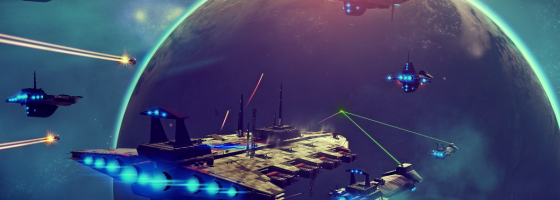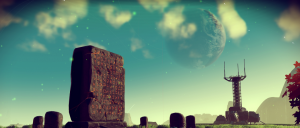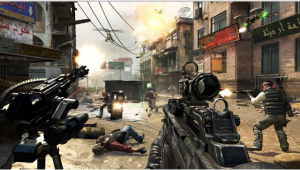Trending
Opinion: How will Project 2025 impact game developers?
The Heritage Foundation's manifesto for the possible next administration could do great harm to many, including large portions of the game development community.

Featured Blog | This community-written post highlights the best of what the game industry has to offer. Read more like it on the Game Developer Blogs or learn how to Submit Your Own Blog Post
This year has seen a lot of debates about the use of day one patches in video games. And for today's post, we're going to talk about whey they're important for game design, despite some negatives.

Video game development is constantly evolving and that means new standards and philosophies are quickly adopted. One of the more rage-inducing for fans would have to be day one patches. Every time a big name game comes out with one, journalists and gamers alike tend to explode in the direction of the designer.
With the big example of this year being No Man's Sky, I figure it was time for a post to talk about the importance of day one patches.

No Man's Sky
If you haven't read it yet, developer Rami Ismail talked about the importance of Day one patching and the certification process and is another good post to read.
Video game development these days is split between the rapidness of digital games/content and the set designs and institutions of console development.
One of the biggest improvements that developers can agree on is the ability of instant patching of digital games. On the PC or digital platform, developers are free to upload patches whenever they see fit; allowing for rapid iteration on their games. Because there is no physical copy to worry about, you always know that your version on Steam or whatever digital platform is the latest.
Console development and physical copies aren't the same, and are still handled using older systems. If you're a consumer of the Game Industry, you've probably heard the term: "Gone Gold" used in the past. Gone Gold refers to the master copy of the game that will be used as the retail version. Just because a game is "finished" doesn't mean that it's going to be on store shelves the next day.

Fez
Indie developers have felt the sting of re-certification in the pastTo be considered "gold," every game must be certified by the platform maker to make sure that it conforms to their requests.
The developer/publisher has to send the final code to be tested and certified before the final steps are taken. If the game code doesn't meet certification, then the developers must go back and work on it until it passes certification.
Unfortunately, this is one of those areas that only developers/publishers have direct information on, as a lot of it is under NDA. Be sure to read the post linked above for more information on this part.
As another factor, any updates to a game must also go through a certification process for each new patch. This is part of the reason why Overkill has had trouble with constantly updating the console versions of Payday 2, and why we don't see Indie games on the consoles patched as much.
Due to the certification requirements, it's also why Indie developers wait until their game is either content finished or close to be done before porting the game. This is so that they only have to go through the process as few times as possible. With the Darkest Dungeon, Redhook waited until the PC version was finished content-wise before working on the PSN version of the game. This was done to avoid any issues with re-certifying the game if any changes were made after release.

Payday 2
There is a big difference in patching the PC version vs. the console of multi-platform titlesAfter the game is certified, we're still not ready to have the game on store shelves.
The game must then be sent for mass producing the retail versions: Including game art, manual and of course the actual disc itself. All those copies will then have to be shipped to retail stores around the world.
With everything said and done, the developer may go gold and still have weeks or even a few months of time before their game is actually on store shelves. That begs the question: What should the developer do in the meantime?
Once the game goes gold and has passed certification, the code essentially becomes locked from any further altering or improvements. Given the amount of time that can pass before the game is out, developers these days tend to continue working on the game. This can include starting to work on DLC content, finding and squashing any minor bugs, or even adding more to the base game.
Once the game is officially out, the developers already have a leg up on putting out new content and updating the game. The day one patch is just that: The continued work by the developers to keep improving the game. People will point to games in the past not needing day one patches, but you also have to realize that most games in the past were rarely updated beyond bug fixes. Additionally, without having digital means, it was absolutely impossible to update retail copies on a grand scale.

No Man's Sky
No Man's Sky's day one version was different from their gold, thanks to continued work by the studioIt’s important to note that we're not referring to games with on the disc DLC for this talk. The reason is that this content was already worked on and included in the game's files; that's another issue to discuss at some point.
In previous posts, we talked about long-term game design as a new viable option for developers to keep improving their games and build a community. Digital distribution has allowed these games to keep going and growing beyond their original release.
With all that said, detractors do have a few fair points that I want to address.
As we talked about, day one patches means that the developers were still working on the game between the gone gold period and the game being shipped to stores. The big point that critics have is the fact that the game was considered "done" if there were still major bugs or issues with the retail code.
Once again, past developers didn't have the luxury of digital updates and had to get everything right on the first pass. That meant spending more time and energy on games while still working around the certification and shipping demands. Even though critics have a point, I still side with the developers for day one patches.
The reason is that you have to remember how profits work in the Game Industry. If your game is not on store shelves (retail or digital), you are not making money. From a studio perspective, the quicker you can get your game certified and begun shipping to stores, the faster you can start earning money for your studio.

Call of Duty (polygon)
Timing your game's release is very important in today's marketThis also matters when we're talking about peak times for game releases. There is a huge difference in terms of marketing and awareness of releasing your game in October and November for the holiday season vs. December/January.
If the developer can get the work done and still are able to get the game shipped to stores at the right time, then I see no reason in decrying day one patches on this point.
Another good point and one that's harder to talk about is what the future holds for online access. Let's say someone buys a game with day one patches 5 or 10 + years down the line and the servers are no longer being supported. If they can't update the game, they'll be left with an inferior copy that may not even fully work.
This is another area that Steam has improved on things compared to the past. Patches and updates are now stored on the Steam servers, instead of having to hunt down patches through download mirrors.
The Game Industry is still very bad at future-proofing games and hardware. Not to mention the fact that if we're talking about singleplayer games, there's always the chance that the person may not have internet access to their console. I know some of you may not believe that, but it's important to remember that console connectivity is still very new in terms of the market.
Things are certainly changing on this front, but we're still not at the point where we can assume that everyone will be able to download your day one patch.

Darkest Dungeon
Indie developers releasing their games on consoles will have to deal with a different patching structureRegarding the future, this is where I do see a fair point against day one patches, but with one caveat. If the publisher does a reprint of the game with the updated code that becomes the new standard version of the game, then that's a different story.
Of course, they would also have to be willing to ship copies of the game to owners of the original version.
With that said this is still a sticky issue, and also has parts in game preservation, but that is something too big to go into detail about in this post.
Day one patches aren't going to go away anytime soon, and the pluses are worth it for developers. I think just like with crowdfunding and early access, the consumer's view on it will be dependent on how developers make use of it.
Using a day one patch to make a game better is different from releasing an unfinished game early with the hope of getting everything done by launch day. The big question on my mind is if we're going to see more console games make use of this.
Internet connectivity and digital platforms have changed the state of PC games, and it's only a matter of time for more impact on the console front. Let me know what you think of day one patches below, and if you have any examples of games where it was done right, I would love to hear them.
If you enjoyed this post, please consider donating to the Game-Wisdom Patreon campaign. Your donations can help to keep the site going and allow me to produce more great content. Follow me on Twitter @GWBycer, and you can find daily video content on the Game-Wisdom YouTube channel.
Read more about:
Featured BlogsYou May Also Like